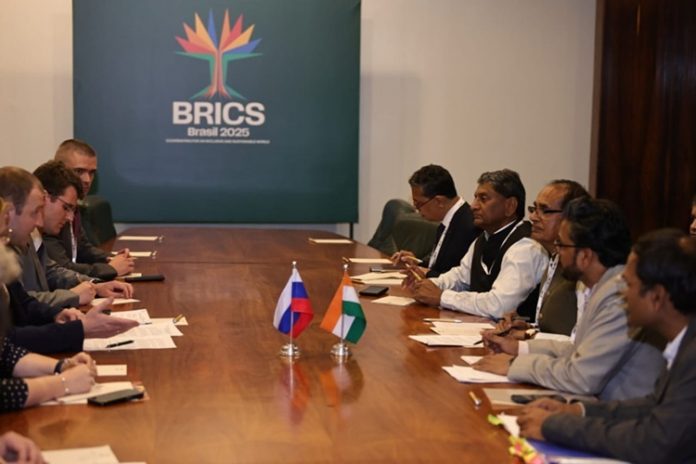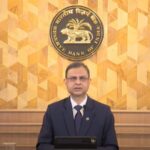At the 15th meeting of BRICS Agriculture Ministers, India reaffirmed its commitment to inclusive, equitable, and sustainable agriculture. Union Agriculture Minister Shivraj Singh Chouhan emphasized the need to place the welfare of small and marginal farmers at the centre of global agricultural strategies and clarified that agriculture, for India, is not merely an economic activity, but a source of livelihood, food, and dignity for millions of families. He underscored that global food security and rural development goals would remain incomplete unless small farmers are protected and empowered.
Union Minister Shivraj Singh Chouhan highlighted that the world’s 510 million smallholder farmers are the backbone of the global food system and are also the most vulnerable in the face of climate change, price volatility, and resource scarcity. Chouhan stated that we cannot leave smallholders to fight these challenges alone; they need our policy support. He presented cluster-based farming, Farmer Producer Organizations (FPOs), cooperative models, and natural farming as effective approaches for the collective empowerment of small farmers and improving their market access.
During the meeting, He called for deeper collaboration to combat climate change by sharing its key programs – National Mission for Sustainable Agriculture (NMSA), National Innovations on Climate Resilient Agriculture (NICRA), Waste to Wealth, Circular Economy, bio-fertilizers, and traditional farming practices. In this context, the BRICS Agriculture Ministers launched the “BRICS Land Restoration Partnership” to address land degradation, desertification, and soil fertility loss. He supported this initiative, highlighting that it would benefit small farmers, tribal communities, and local cultivators through the convergence of traditional knowledge and scientific innovation.
In the Joint Declaration, BRICS nations collectively reiterated their resolve to make the global agri-food system fair, inclusive, innovative, and sustainable. The declaration emphasized commitments to food security, climate adaptation, empowerment of women and youth, sustainable fisheries and livestock development, soil and land restoration, digital agriculture certification, and promotion of financial and trade mechanisms for the agricultural economies of the Global South. The formal announcement of the BRICS Land Restoration Partnership further reinforced the group’s collective commitment to halting land degradation and desertification.
The meeting underlined the need to make agricultural trade fair, control global price volatility, and ensure remunerative prices for small farmers. He reiterated the importance of public food stockholding systems, minimum support prices (MSP), and value chains that connect smallholders directly to consumers. Chouhan cited India’s food storage and distribution capacity during the COVID-19 crisis as a case in point, through which free rations were distributed to over 800 million people.
Shivraj Singh Chouhan shared its technological initiatives – Digital Agriculture Mission, AgriStack, drone technology, and Climate-Resilient Villages – and explained how these innovations have significantly improved service delivery, transparency and farmer incomes. Union Minister also mentioned initiatives like Lakhpati Didi and Drone Didi as examples of India’s commitment to the social and economic empowerment of rural women, stating, “For India, empowering women socially, economically, and politically is a mission.”
Union Minister Shivraj Singh Chouhan also invited BRICS nations to participate in World Food India 2025 and the World Audio-Visual Entertainment Summit 2025, positioning these platforms as avenues for innovation, partnership, and global collaboration. Concluding his address with India’s ancient Vedic values, the Chouhan offered a universal benediction; May all be happy, may all be healthy, may there be welfare and well-being for all. This vision reflects not only India’s national priorities but also its leadership role on the international stage.
(Source: PIB)










